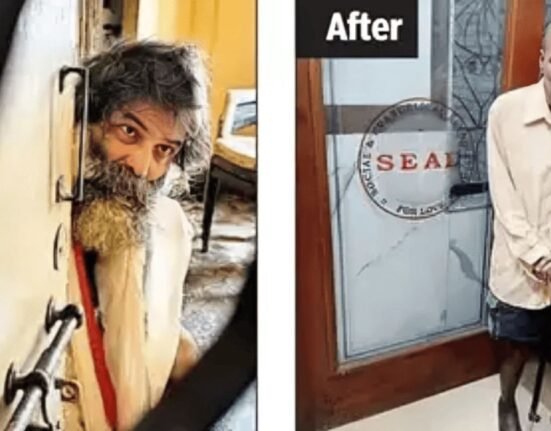Human papillomavirus (HPV) consists of double strands of DNA and is either transmitted sexually or through the use of fomites such as HPV-infected instruments that are not properly sanitized, used in manicures, pedicures, etc. Also, there is a strong correlation between HPV and cervical cancer according to Nobel Prize winner Dr. Harald zur Hausen.
Not only does this virus affect genitalia but it also affects mucous membranes present in the mouth and throat. As cancer of the cervix, vulva, vagina, anus, penis, and oropharynx can be caused by the human papillomavirus, particularly type 16. The screening of HPV 16 or HPV 18 can be done through a cervical swab, colposcopy, the Pap smear test ( Papanicolaou test) or cytology, or Visual Inspection of the cervix with acetic acid (VIA)or Lugol’s iodine (VILI) , etc. There is a high prevalence of growth of HPV-induced pre-cancer cells in people infected with HIV. WHO recommends vaccination against HPV in young girls aged 9-14 years and screening in women in 25 years (HIV positive). For women aged above 30, the screening should be done every five years as the cancer cells can take 15-20 years to develop. The treatment may include chemotherapy, radiation therapy and surgery.
Dr. NK Arora, the director of the National Technical Advisory Group on Immunisation (NTAGI) plans to include the HPV vaccine in India’s national immunization program in the second half of the year 2023. CERVAVAC, India’s indigenously developed vaccine was launched in September 2022 by the Serum Institute of India (SII), the institute which is famous for the development of vaccines against bacterial and viral vaccines including COVID-19 vaccines. The HPV vaccine will be available at a very low cost (₹ 200-400) so that it is affordable.
Late Dr. George Libman Engel, an eminent psychiatrist, and internist at the University of Rochester Medical Center formulated the biopsychosocial model in the 1960s. In this model, he emphasized the relationship between emotion and disease. Also, he worked along the lines of how these ideas can be incorporated into medical training and clinical practice. In order to enhance the dyadic relationship between clinicians and their patients and multidisciplinary approaches to patient care, the biopsychosocial model assists primary care physicians in comprehending interactions between the biological and psychosocial components of illnesses.
Similarly in managing cervical cancer, social factors such as place of residence (rural or urban), religion, marital status, economic background, educational level, medical insurance, access to palliative care, affordable health care (like distance to nearby hospitals, CHCs, screening tests, HPV vaccination, anti-cancer drugs, and radiation therapies ), psychoeducation about the sexually transmitted diseases STDs, disease (through social and print media), the taboo around using condoms, and treatment-seeking behaviors could play an important role. Self-efficacy and supernatural beliefs could be the psychological factors. Biological factors may include age at the time of first sexual contact and parity. After a cervical cancer diagnosis, a person can be grappled with feelings of fear, anger, sadness, stress, and high anxiety levels. In a recently published article in the Indian Journal of Gynecologic Oncology, the authors indicated that there could be a possible link between cervical cancer and affective (mood) disorders. In his book, Shamans, Mystics and doctors, Sudhir Kakar has jotted down his experiences from the field for the cure (spiritual well-being) of mental illnesses associated with fatal diseases and how people approach different palmists, vaidyas, hakims, babas, matas, sadhus, before plunging into modern medicine.
Because cervical cancer is one of the most common cancers among women worldwide, veterans from the Indian film industry like Manisha Koirala, who has survived ovarian cancer, and Radhika Apte, who is associated with the #DontGetCaughtByHPV campaign, are working to raise awareness of HPV and cervical cancer in India.












Leave feedback about this